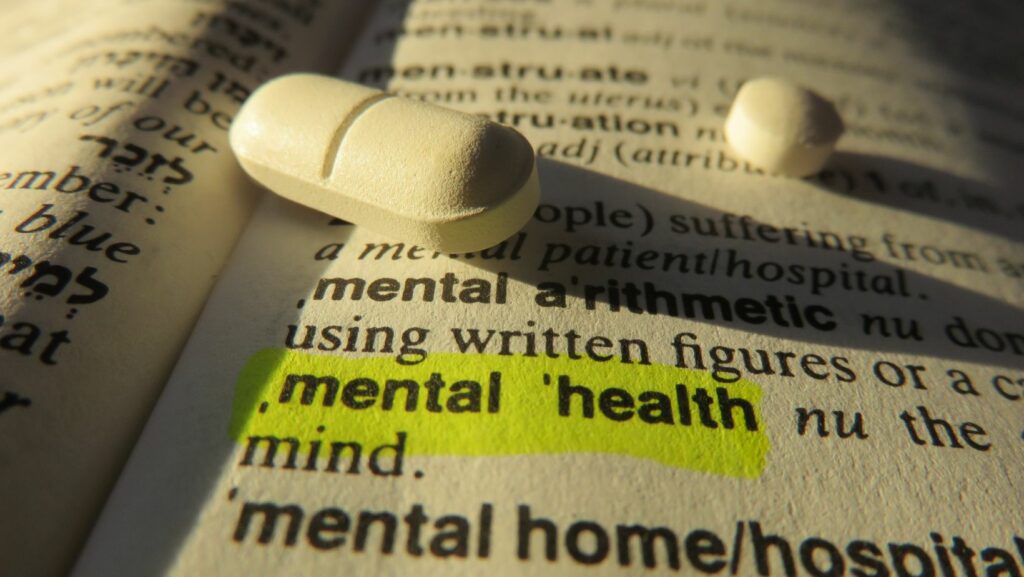In the quest for well-being, books on mental health stand out as beacons of hope and understanding. They offer insights into the complex world of emotions, guiding readers through the challenges of anxiety, depression, and beyond. With countless titles available, finding the best books that resonate with one’s journey can be a transformative experience. These carefully selected reads not only provide valuable knowledge but also foster a sense of companionship and support.
Best Books For Mental Health
 Books play a pivotal role in enhancing mental well-being, offering readers a unique mixture of solace, understanding, and empowerment. They serve as both mirrors and windows — mirroring readers’ experiences and emotions, while also providing insights into different perspectives and coping strategies. Through engaging narratives and evidence-based approaches, books on mental health illuminate the path to emotional resilience, fostering a deeper understanding of one’s mind and the complex world of emotions.
Books play a pivotal role in enhancing mental well-being, offering readers a unique mixture of solace, understanding, and empowerment. They serve as both mirrors and windows — mirroring readers’ experiences and emotions, while also providing insights into different perspectives and coping strategies. Through engaging narratives and evidence-based approaches, books on mental health illuminate the path to emotional resilience, fostering a deeper understanding of one’s mind and the complex world of emotions.
By presenting stories of struggle and triumph, these works instill hope and affirm that no one is alone in their journey. Moreover, the act of reading itself has therapeutic benefits, encouraging mindfulness and reducing stress. For individuals seeking to navigate their mental health challenges or simply aiming for a healthier mindset, books emerge as invaluable resources, guiding them towards personal growth and improved mental wellness.
Best Books for Anxiety and Stress Relief
 Continuing the journey of exploring books that forge pathways to mental wellness, the focus shifts to titles specifically curated for anxiety and stress relief. These books, through their insightful narratives and practical exercises, offer readers a beacon of hope and strategies to manage their anxieties. They blend personal anecdotes with scientific research to create a relatable and educational experience. Here are standout examples:
Continuing the journey of exploring books that forge pathways to mental wellness, the focus shifts to titles specifically curated for anxiety and stress relief. These books, through their insightful narratives and practical exercises, offer readers a beacon of hope and strategies to manage their anxieties. They blend personal anecdotes with scientific research to create a relatable and educational experience. Here are standout examples:
- “The Anxiety and Phobia Workbook” by Edmund J. Bourne: Readers find a comprehensive guide to overcoming anxiety, phobias, and panic attacks. Bourne incorporates exercises that focus on relaxation, mindfulness, and cognitive restructuring.
- “Wherever You Go, There You Are” by Jon Kabat-Zinn: This book introduces mindfulness meditation as a practical tool for stress reduction, encouraging readers to find peace in the present moment.
- “Feeling Good: The New Mood Therapy” by David D. Burns: Highlighting the principles of cognitive behavioral therapy (CBT), Burns offers techniques to combat depressive thoughts that can lead to anxiety and stress.
By delving into these books, individuals gain access to a reservoir of coping mechanisms and learn to navigate their mental health with confidence and grace.
Top Picks for Depression and Mood Disorders
 Transitioning from the topic of anxiety and stress relief, the discussion shifts to invaluable resources specifically tailored for those battling depression and mood disorders. These handpicked books offer a beacon of hope and practical advice, distinguishing themselves as essential reads.
Transitioning from the topic of anxiety and stress relief, the discussion shifts to invaluable resources specifically tailored for those battling depression and mood disorders. These handpicked books offer a beacon of hope and practical advice, distinguishing themselves as essential reads.
- “The Noonday Demon: An Atlas of Depression” by Andrew Solomon delves into the complex world of depression, blending personal narrative with rigorous research. Solomon’s masterpiece stands out for its depth, empathy, and comprehensive view of depression’s multifaceted nature.
- “Feeling Good: The New Mood Therapy” by David D. Burns continues to be a cornerstone in the self-help realm for depression. Burns introduces cognitive behavioral therapy (CBT) techniques that readers can apply independently to alleviate depression and enhance their mood.
- “An Unquiet Mind: A Memoir of Moods and Madness” by Kay Redfield Jamison offers a unique vista into the life of someone with bipolar disorder. Jamison, a clinical psychologist and a sufferer herself, provides an insightful and deeply personal account of the struggles and triumphs over mood disorders.
Each title serves not only as a guide but also as a companion, offering comfort, understanding, and tangible strategies for those looking to navigate the challenges of depression and mood disorders. These books bridge the gap between clinical treatment and personal understanding, making them indispensable in the realm of mental health literature.

